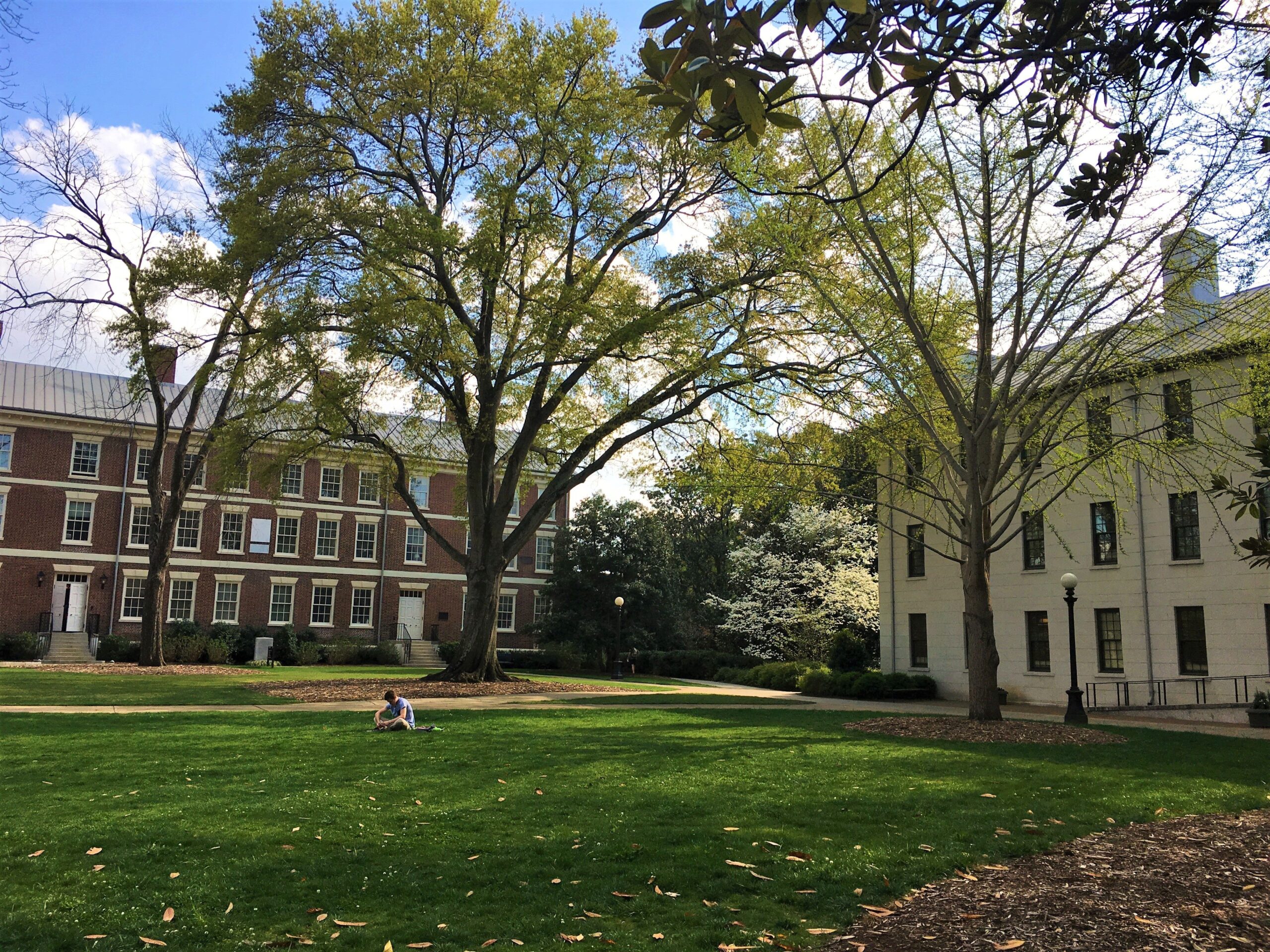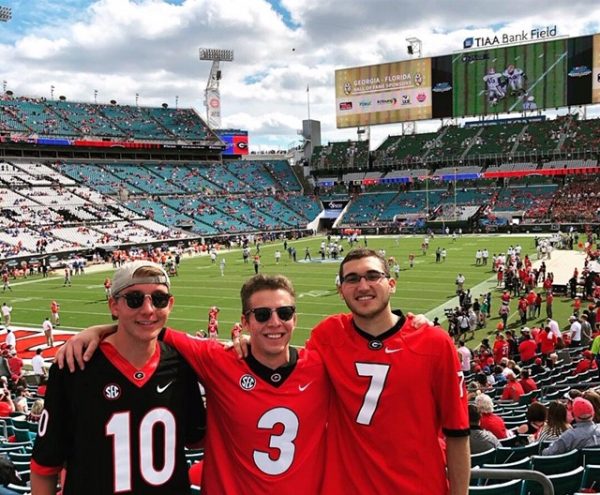Living On A COVID-19 Hot-Spot Campus: UGA Students Share Their Insights

The University of Georgia is among U.S. campuses with the highest number of COVID-19 infections.
Wikimedia Commons
The University of Georgia registered 1,417 official cases of COVID-19 this week.
That puts the Athens university among the top COVID-19-infected campuses in the nation.
“The UGA case rate is more than that of some countries,” said Jared Steckl, a senior majoring in business.
Latvia, with a population of 2 million, would fit that statement. UGA has about 50,000 students, staff and faculty.

Steckl had welcomed the alternate on-campus class options, at first, because some of his classes are tough to do online. He says things on campus are quite safe.
“I sat in a 100-person lecture hall with four people in there. So, yeah, you know, it’s socially distanced. I’m not worried about getting COVID on campus. I’m worried about getting COVID anywhere else,” he said.
UGA said this week that its COVID-19 safety efforts on campus seem to be working, as only one faculty member was diagnosed with the illness.
Steckl believes students partying in downtown Athens contribute to the steep rise in numbers. He knows how UGA students can party because he used to be a bartender pre-COVID-19.
“I love bartending. I’ve been doing it since I was a sophomore, I’m very sad I can’t do it.”
He still could, as bars are open in Athens until 11:30 p.m., but Steckl doesn’t want to get COVID-19.
Now, he hangs out only with close friend, but exposure to COVID-19 is getting harder and harder to avoid.
“It’s definitely scary. I’m seeing texts every day. It’s becoming more of a problem. This last week, it seems like everyone’s friends are getting it, or friend of a friend is getting it,” he said.
Steckl and his roommates already had one weekend of self-quarantine after one of them was exposed to another student with COVID-19. They all had to wait until Monday for the testing center to open.
They all tested negative.

“We do think that we will all get it at some point, but, in our heads, we’re still like we want to avoid that at all cost,” said Camilla Kasper, a senior who is studying social work.
Kasper and her roommates had to have a serious discussion to lay down some ground rules about how to stay safe.
“So we had a really big talk about it last night so that everyone is on the same page and up front, but everyone has been talking about how stressful it’s been.”
Much of the stress comes not just from worry about getting sick, but from social pressures, from other friends who may not be so careful, she said.

When Bradley Shanker, a UGA junior, visited a friend who lives downtown on a Friday night, he looked out the window and saw a problem.
“It almost looked as if it’s a normal night downtown, which is a little ridiculous. No one’s wearing a mask, people packing into bars, no one’s following the rules.”
He believes UGA students have no business going downtown while COVID-19 infections are on the rise because it can be dangerous — and not just for students, he said.
“Athens itself has a very high poverty rate, and students going downtown and all that, these decisions they’re making are leading to the local Athens community being affected and being hurt.”
Athens-Clarke County and Bullock County, where Georgia Southern University is located, show the steepest rise in COVID-19 cases in Georgia over the past two weeks.
Shanker is one of the 1,417 UGA COVID-19 cases.
His was mild. He lost his sense of taste and smell. His taste is back; his sense of smell is not. Doctors told him it would eventually return.
He doesn’t know how he got infected, but feels lucky it wasn’t worse. He’s scheduled an antibody test and plans to donate plasma.
The University of Georgia updates the number of COVID-19 infections every Wednesday.








